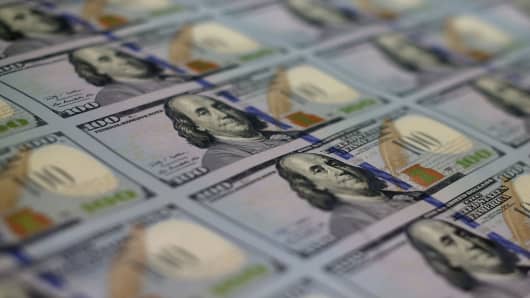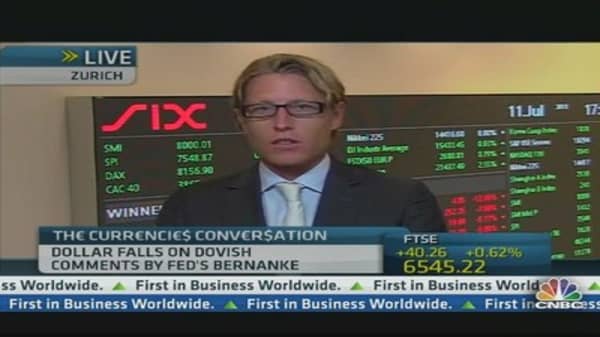The U.S. dollar fell to multi-week lows against the euro and yen on Thursday as traders scaled back expectations that the Federal Reserve will slow its asset purchases in the coming months.
Fed Chairman Ben Bernanke said on Wednesday the U.S. central bank would continue its accommodative monetary policy because of low inflation and weakness in the labor market.
(Read More: Bernanke: Highly Accommodative Policy Needed for 'ForeseeableFuture')
Investors had driven the dollar to three-year peaks against a basket of currencies this week on bets the Fed will start reducing its stimulus as early as September.
The Fed's $85 billion monthly bond-buying has pressured the dollar because it is tantamount to printing money.
"The dramatic drop in the dollar highlights how one-sided the market had become and how quickly traders raced to close out long dollar positions," said Camilla Sutton, chief foreign exchange strategist at Scotiabank in Toronto.
Minutes of the Fed's June meeting, released Wednesday, also supported the view of the Fed keeping the status quo for longer, with many policymakers wanting reassurance the U.S. jobs recovery was on solid ground before any policy retreat.




